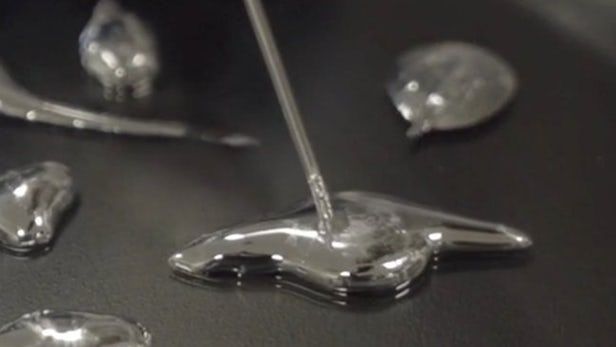In a step towards creating a new class of electronics that look and feel like soft, natural organisms, mechanical engineers at Carnegie Mellon University are developing a fluidic transistor out of a metal alloy of indium and gallium that is liquid at room temperature. From biocompatible disease monitors to shape-shifting robots, the potential applications for such squishy computers are intriguing.
Until recently, the only example of liquid electronics were microswitches made up of tiny glass tubes with a bead of mercury inside that closes the switch when it rolls between two wires. Essentially, the fluidic transistor is a much more sophisticated switch that’s made of a liquid metal alloy that is non-toxic, so it can be infused into rubber to create soft, stretchable circuits.
Unlike the mercury switch, where tilting the vial closes the circuit, the fluidic transistor works by opening and closing the connection between metal droplets using the direction of the voltage. When it flows in one direction, the droplets combine and the circuit closes. If it flows the other way, the droplet splits and the circuit opens.
